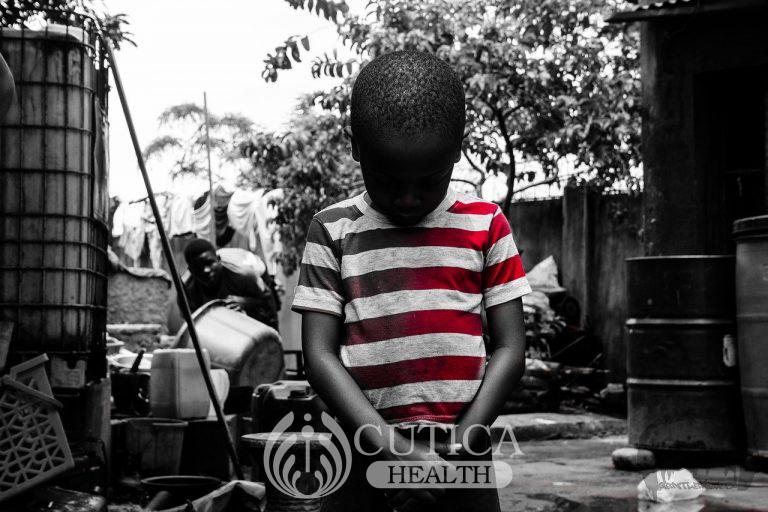
While autism is present from birth, the diagnosis is often delayed. Discovering the signs and symptoms of autism early enough offers timely intervention that assists the child to learn and thrive.
Here is Chad’s story: Chad is a second child. Age 18 months, his parents are concerned because he is not interested in playing with them; for example, mimicking sounds, gestures, or playing peek-a-boo. His older brother was interactive and communicative by this age, but Chad rarely makes eye contact despite attempts to engage him with songs or toys. Nothing interests him; he does not make babbly baby sounds, noises, and does not respond to his name, smile, or laugh. After confirming Chad has normal hearing, his pediatrician referred him to a Child Development Specialist.

Symptoms and signs of autism
Autism presents with delays in several areas of social development, like learning how to talk, play, and socialize with others.
The symptoms range from mild to severe. A child with autism has difficulties to some extent in three main areas;
- Verbal or non-verbal communication
- Playing or relating with others around them (through learning and paying attention)
- Changes in daily activities (thought and behavior adaptability)
Early signs in a baby or toddler – 6 months to 24 months
The baby does not;
- Make eye contact – especially when feeding or being spoken to.
- Respond to her/his name or a familiar voice.
- Smile while smiled at even when parents attempt to make funny faces
- Use or follow gestures to communicate or visually follow objects.
- Make babbly noises due to excitement or noise to get attention.
- Respond to or initiate affectionate gestures like cuddles and kisses or reach out to be held.
- Show interest or enjoy playing with other people.
- Show care if someone experiences discomfort.
- Imitate facial expressions or gestures.

An autistic child may be misinterpreted as a “good baby” since the child may seem quiet, independent and undemanding
Signs and symptoms in older children
In older children, autism or ASD signs become more distinct and diverse, manifesting as difficulties in communication, learning, social interaction, and inflexibility. They include:
- Disinterest in people and the surrounding
- Avoids eye contact
- Does not play, make friends or connect with others
- Not interested in being touched, cuddled or being held
- Challenges in expressing or talking about their feelings or expressing desires or needs. difficulties
- Does not respond when spoken to
- Repetition of words or phrases over and over.
- Repeats a question asked, instead of answering it
- Speaking with an odd tone, pitch.
- Does not interpret or understand voice tone, humor or sarcasm
- Difficulty in understanding simple, directions, or questions like – what is your name?
- Difficulty picking or using nonverbal cues and body language like facial expressions, tone of voice, and gestures.
- Difficulty in flexibly adjusting to changes in schedule or environment. Follows a strict routine (insists on a specific route to school, bedtime, mealtime, or cannot stand rearrangements)
- Obsessive behavior, activities, or interests such as arranging strange objects or toys in a particular way, unusual attachment to them, or watching moving objects for long periods.
- Self-soothing or stimulating behaviors where a child repeats an action or movement again and again; for example, clapping or flapping hands, rocking, spinning, headbanging, snapping fingers, tapping, or starching ears, repeating words or noises among others.
What causes autism?
The definite cause of autism (ASD) is not known; nevertheless, there is a link to genetic or chromosomal conditions and prenatal environmental factors. A lot of controversies have been aired in the past in regards to vaccines causing autism. However, the WHO, CDC, and FDA refute such claims, citing that vaccines do not cause autism.
Parents play a key role in diagnosis

A parent knows their child better than anyone and can spot red flags in a child’s development. As a parent, your observations and experiences with your child are valuable in making a diagnosis. If you have any concerns, don’t have the “Wait and See Mentality”; discuss them with the pediatrician. Take your child for routine developmental screening tests.
Also, trust your instincts as a parent. If a well-meaning doctor misses the red flags and disregards your concerns, seek a second opinion, or ask for a referral to a Child Development Specialist. Child Development Specialists use screening tools make a conclusive diagnosis.
Treatment
Each child is different; therefore, tailored behavioral therapy and structured school programs are beneficial to children with ASD. Treatment may include psychotherapy, occupational therapy, and medication in some cases. Early diagnosis and intensive treatment give remarkable results.












